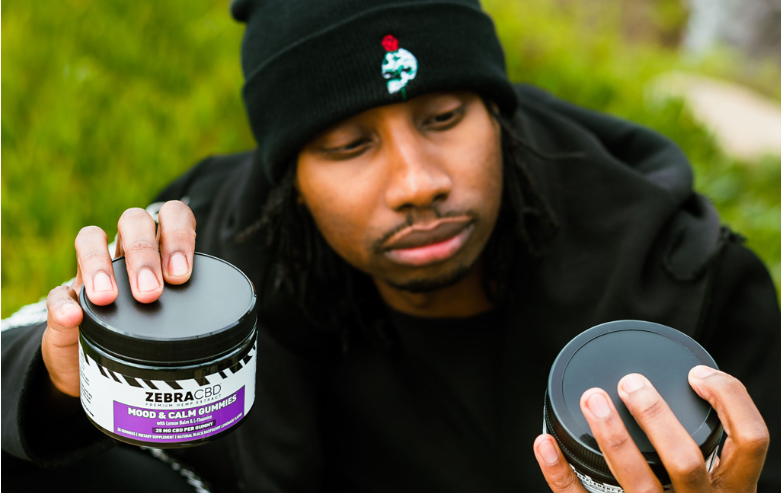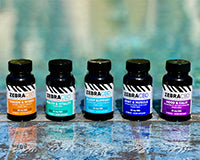
Welcome to the realm of CBD, a world overflowing with relaxation, tranquility and serenity.
CBD is a type of cannabinoid, called cannabidiol. It’s found in all cannabis plants, including both marijuana and hemp plants. Only hemp, however, is federally legal. Accordingly, since 2018, hemp-derived CBD products have filled shelves of grocery stores, wellness markets and dispensaries throughout the United States.
If you’re a newbie to CBD, we’ve got you covered when it comes to your appropriate initial dosage and safety precautions.
But First, A CBD Deep Dive
In 2018, the United States government passed the Farm Bill, officially known as the Agricultural Improvement Act of 2018. In addition to establishing nutrition assistance programs, farm subsidies and rural development, the legislature also removed hemp from the list of controlled substances.
Effectively, the cultivation and sale of hemp became legal nationwide.
So, what differentiates hemp from marijuana? Its tetrahydrocannabinol (THC) content. Legally, hemp plants (and their products, like CBD) can contain no more than 0.3% THC. This makes hemp a relatively safe product, with little chance of creating psychoactive effects or showing up on a drug test. It’s also not addictive.
What is CBD?
CBD is a type of cannabinoid found in all cannabis plants. And it’s just one of many: Cannabis plants contain more than 100 cannabinoids. These chemical compounds are largely responsible for the plant’s impact on the human body, eliciting many scientific research studies into their effects.
The two most well-known cannabinoids are CBD and THC. However, other notable cannabinoids include:
- Cannabinol (CBN) – CBN is a product of THC degradation and is mildly psychoactive. It may have sedative properties and is sometimes used to help with sleep.
- Cannabigerol (CBG) – CBG is often referred to as the "mother cannabinoid" because it’s a precursor to other cannabinoids, such as THC and CBD. It has potential anti-inflammatory and ache-relieving properties.
- Cannabichromene (CBC) – CBC is non-psychoactive and may have anti-inflammatory, and analgesic properties.
- Tetrahydrocannabivarin (THCV)– THCV is structurally similar to THC but produces different effects. It may act as an appetite suppressant and has been studied for its potential use in weight management.
- Cannabidiolic Acid (CBDA) and Tetrahydrocannabinolic Acid (THCA) – These are the acidic, non-activated forms of CBD and THC found in raw cannabis. When heated, such as through smoking or cooking, they convert to their active, more well-known forms (CBD and THC).
What Are The Different Types of CBD?
Since CBD’s legalization, a variety of CBD products have broken into the health and wellness market — CBD tinctures, CBD gummies, CBD tablets, CBD hemp pills and CBD topicals have each made their place among shop shelves.
Within these categories, three types of CBD extracts are used across the board. These include:
- Full spectrum CBD – Full spectrum CBD extracts include every cannabinoid, terpene and flavonoid found in the hemp plant, including 0.3% or less THC. In a 2020 study, it was found that the combination of these products creates an occurrence called the “entourage effect.” Essentially, these compounds can work together to increase the effect of the CBD.
- Broad spectrum CBD – For people looking for a THC-free option, there’s broad spectrum CBD. This type of CBD extract contains all cannabinoids, flavonoids and terpenes from the hemp plant, except for THC. Even without THC, it’s believed that broad spectrum CBD users may still benefit from the “entourage effect.”
- Isolate CBD– Isolate CBD consists of pure CBD oil, meaning it contains no other cannabinoids, flavonoids or terpenes. Rather, it has a very high level of CBD concentration.
How is CBD Extracted?
First, cultivators must harvest the leaves and flowers of their hemp crops. Following this process, the plant material undergoes one of four extraction processes:
- Carbon dioxide extraction – Using carbon dioxide, manufacturers separate the CBD oil from the plant material, producing high-concentration CBD.
- Steam distillation – Less effective than carbon dioxide extraction, steam distillation involves manufacturers who steam the plant material to divorce the CBD oil from the rest of the plant.
- Solvent extraction – This type of extraction method is controversial since solvents can leave a residue that pollutes the final products. Manufacturers may also use materials like ethanol, acetonitrile and hexane, which are highly flammable as well.
- Lipid extraction – To avoid the use of carbon dioxide and solvents, some manufacturers are implementing lipids like coconut oil, MCT oil or olive oil. The CBD oil is absorbed into these fats through heat and pressure.
Choosing a Safe and Effective CBD Product
As you can see, there are a variety of extraction methods and CBD extracts used on the market today. As a beginner, it can be overwhelming to choose the appropriate CBD products that best match your needs and health goals.
Fortunately, we’re here to focus on what you need to know.
Is CBD Safe?
When shopping for a CBD product, you’ll want to research each brand in the running. Identify whether or not they’re using a high-quality CBD extract. You can find this information in each product’s Certificate of Analysis (COA), which you can find by scanning the label’s QR code or entering a code into the company’s COA database.
A COA confirms that the product was tested by a certified, third-party lab with no affiliation with the company. Within this certificate, you’ll find essential information about the product in hand, such as:
- Cannabinoid potency and profiles
- Heavy metal analysis
- Pesticide analysis
You can use these numbers to cross-check the information on the label. For example, if the label states that it contains only 0.3% THC but the certificate confirms that there is 0.5% THC, you should be wary of the product and its manufacturer, as this exceeds legal limits.
The certificate will also tell you if any contaminants, such as microbials, heavy metals, pesticides, herbicides or fungicides are present within the batch.
Look, too, at the presence of any remnant solvents. Generally, carbon dioxide extraction methods are considered the gold standard when it comes to manufacturing processes, and the company will likely disclose its methods online.
Which form of CBD is most effective?
Also, consider the type of CBD extract. All CBD extracts are safe, but one may be more effective for your desired outcome than another. For example, people looking to support feelings of calm and drowsiness may benefit from a full spectrum CBD oil/product that contains other cannabinoids, like CBN, that can help facilitate more restful sleep. To better understand how CBN contributes to these effects, check out our detailed guides on 'What Does CBN Do?', and what the best CBN dosage for sleep is.
Alternatively, CBD isolate is best for those looking to avoid THC for work or personal reasons. While the effects of isolate CBD may be less noticeable than its alternatives, this form of pure CBD is still believed to produce potential benefits.
CBD Dosage Factors to Consider
Once you’ve narrowed down the best company and type of CBD extract, you can begin to pay attention to dosing, or how much CBD to take. So, how much CBD should a beginner start with? There are a few elements to factor in.
Body Weight
Currently, there is only one FDA-regulation CBD medication on the market. Per those dosing requirements, it’s recommended to start with 2.5 milligrams per kilogram of body weight, twice a day. As your body adjusts, you can increase the dosage to 5 milligrams per kilogram of body weight.
Other research, however, suggests that people can have a far higher dose of CBD, even when first beginning. The majority of human studies assessing the efficacy of CBD involve anywhere from 25 to 1,500 milligrams of CBD daily. Although, it’s generally recommended to start at 5 milligrams and work your way up to a higher CBD dose, anywhere from 20 to 40 milligrams, depending on how your body reacts to the compound.
People with higher weights and those looking to relieve body aches are likely to benefit from a higher CBD dosage.
How You Take It
Fortunately, it’s relatively easy to find your proper CBD dosage. When using a CBD tincture, you can administer an exact dosage using the pipette. Edible CBD products, like gummies, will have fewer exact doses since they can differ from gummy to gummy. However, the manufacturer will include approximate dosages per CBD gummy, tablet or foodstuff.
Personal Body Chemistry
When determining the rightCBD dose as a beginner, it's crucial to consider your individual body chemistry. Everyone's body reacts differently to substances, including CBD. If you know you have a higher or lower tolerance to other medications or supplements, this may impact how much CBD you should take. Starting with a lower doseand gradually increasing it allows you to monitor how your body responds without overwhelming your system.
Additionally, CBD can potentially interact with certain medications, affecting how they are metabolized. If you're taking any prescription medications, your doctor can help you identify any risks and guide you in determining the safest starting dosage for your needs.
Goals & Health Benefits
The health benefits you're seeking from CBD play a major role in determining the appropriate dosage. For example, those looking for relief from chronic pain or inflammation may need ahigher dose compared to someone using CBD for general relaxation or improved sleep. Identifying your specific goals helps ensure you're taking a dose that aligns with the benefits you want to achieve.
Different health conditions respond to varying amounts of CBD, so it's important to adjust your dosage based on your needs. If you're targeting a specific issue like anxiety, starting with alower dose and gradually increasing it may be effective. For more persistent conditions, such as arthritis pain, ahigher dose might be necessary to experience the full benefits of CBD.
Advice From Your Healthcare Provider
All that said, it’s best to consult with ahealthcare professional before adding CBD to your wellness routine and determining the right dose for yourself, particularly if you suffer from a medical condition or are taking prescription medications. Consulting a professional ensures that you’re using CBD safely and effectively, with proper guidance on how it may interact with you as an individual.
How to Administer CBD
When using a CBD tincture, the best method is administering the oil sublingually — that is, dropping the liquid under your tongue and letting it sit for up to 30 minutes. When placed under the tongue, the CBD can completely bypass your digestive system and enter directly into your bloodstream. For CBD edibles, pills and tablets, refer to the directions on the packaging.
How long does it take for CBD to kick in?
If you're ingesting CBD through chewing or swallowing, these products must pass through your digestive system and into your small intestine before they can take effect.
For this reason, CBD edibles often have longer-lasting effects, while CBD oils take effect more quickly.Topical applications generally take 45 to 60 minutes to work as they are absorbed through the skin and target localized areas.
How long will the CBD effect last?
The effects of CBD typically last between 2 to 6 hours, though this can also vary based on dosage, method of consumption, and your individual tolerance.
To gauge how long CBD lasts for you personally, it's helpful to track details such as the amount you took, when the effects began, how strong they were, and when they wore off. This can give you a clearer understanding of how CBD interacts with your body.
Zebra CBD: CBD for Beginners
Generally, the optimal dose of CBD depends on how your body reacts and your desired effect. However, it’s recommended to start small and build up as your body becomes accustomed to the CBD.
For high-quality CBD online as well as plenty of CBD resources for beginners, look to Zebra CBD, your trusted CBD expert.
Explore our CBD topicals, CBD oils, CBD tablets, and CBD gummies for sale made with premium hemp extract and a Label Accuracy Guarantee. We also provide a variety of CBD blogs to educate you on how to best use our products for your health, wellness and nutritional needs.
Take the first step with Zebra CBD.
Sources:
- Government of Canada. About Cannabis. https://www.canada.ca/en/health-canada/services/drugs-medication/cannabis/about.html
- CDC. CBD: What You Need to Know. https://www.cdc.gov/marijuana/featured-topics/CBD.html
- Medical News Today. Full-spectrum vs. Broad-spectrum CBD. https://www.medicalnewstoday.com/articles/full-spectrum-cbd-vs-broad-spectrum-cbd#full-spectrum-cbd
- Healthline. CBD Dosage: Figuring Out How Much to Take. https://www.healthline.com/health/cbd-dosage









